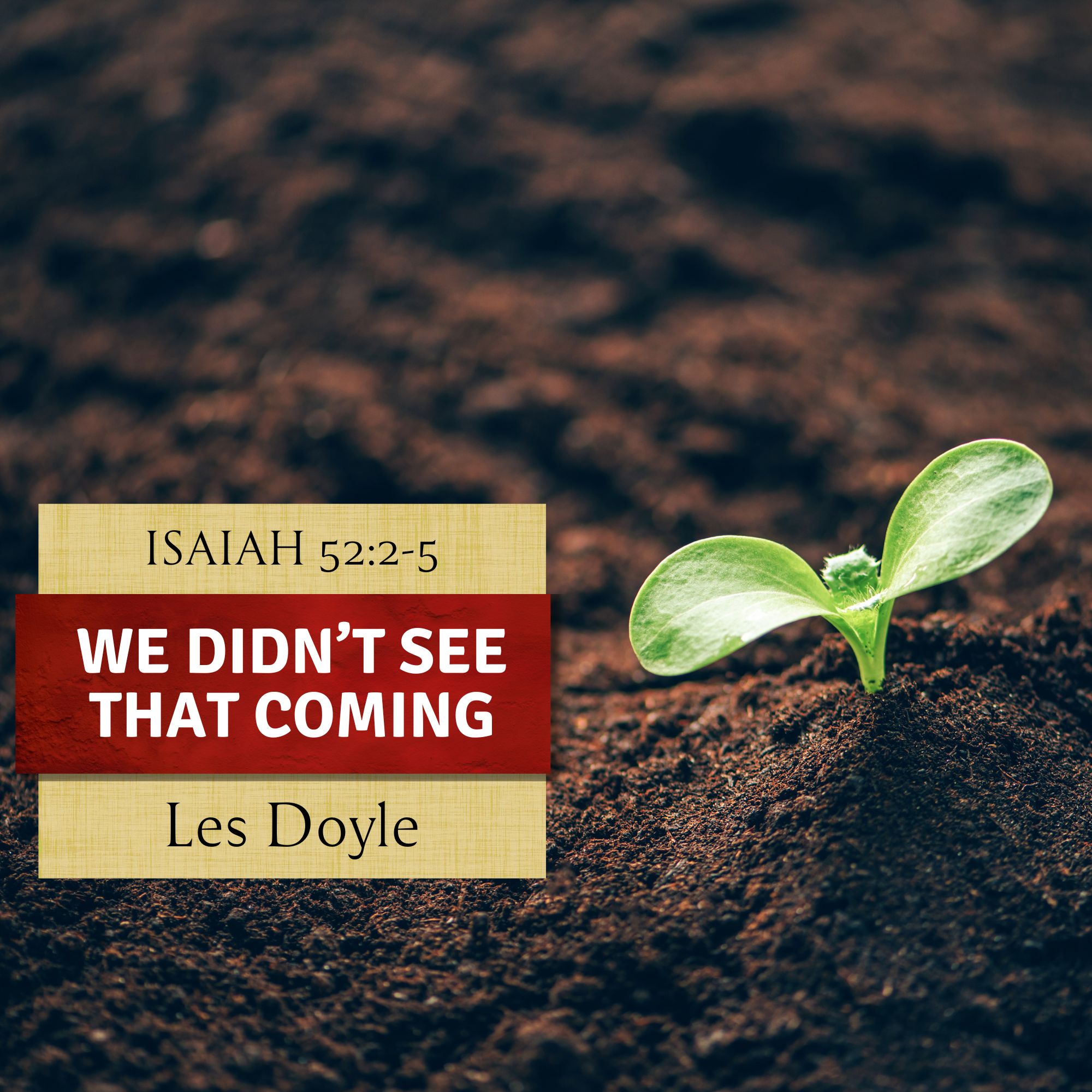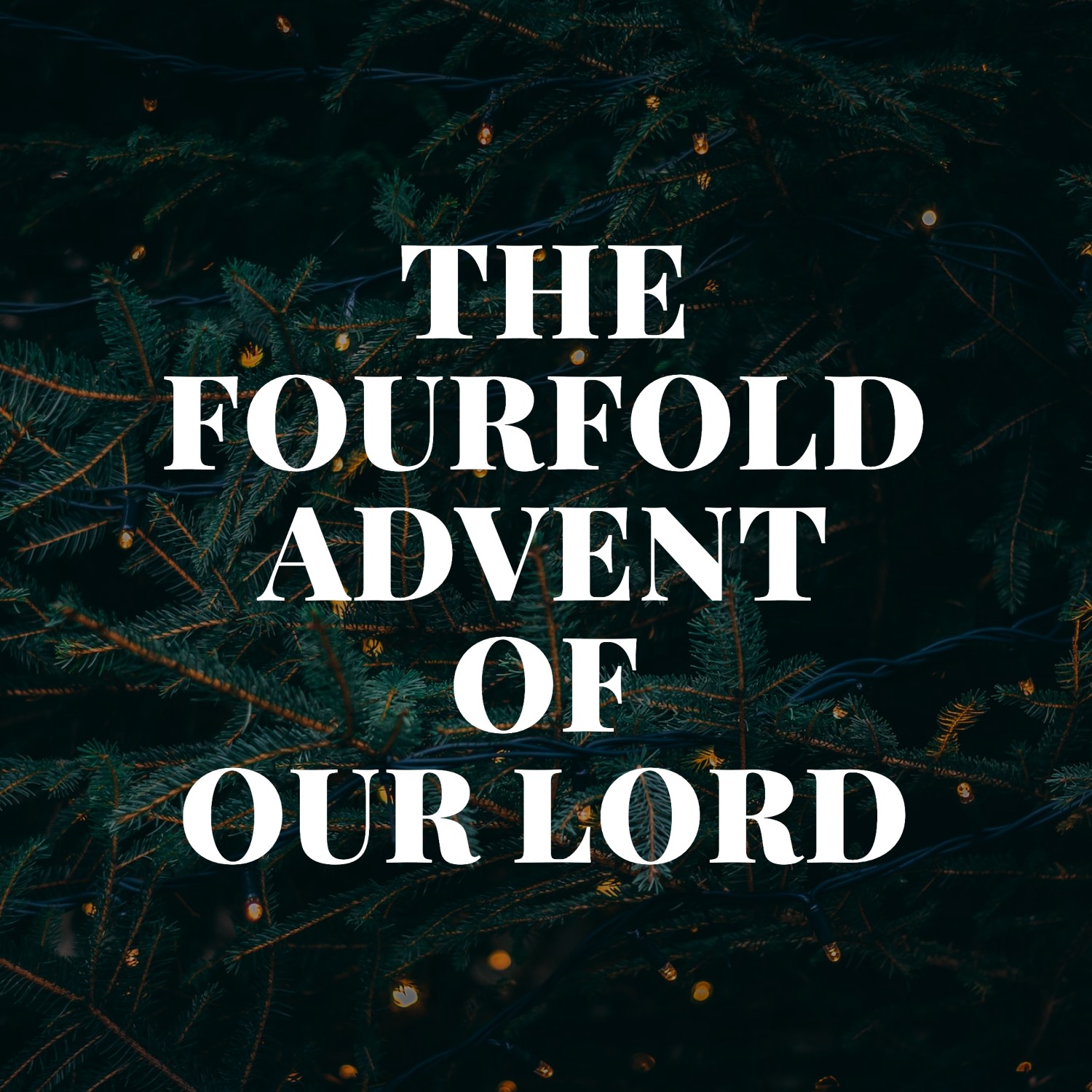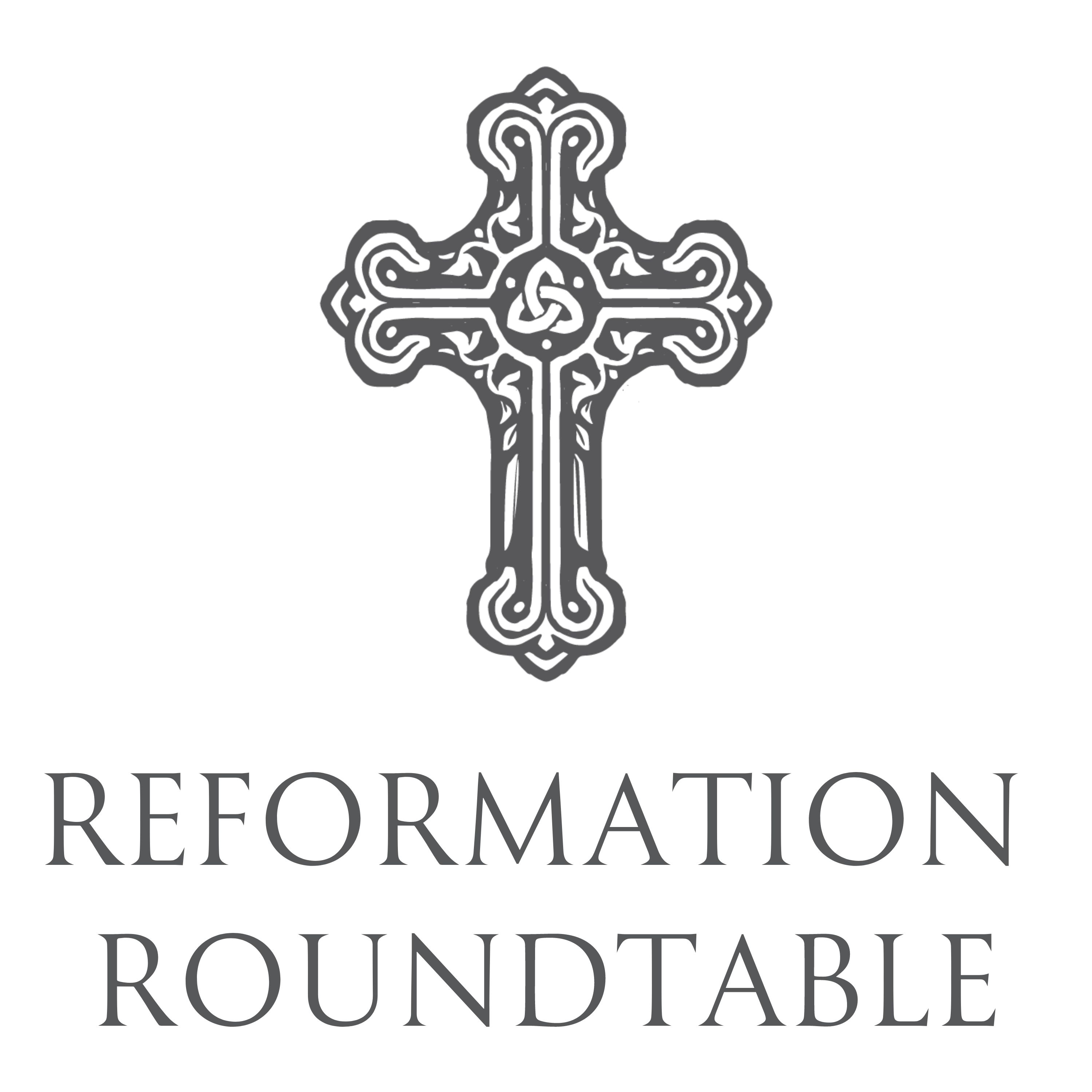Episode Transcript
The Christ of Christmas
Sunday, December 24th, 2023
Christ Covenant Church – Centralia, WA
John 1:1-5, 14
In the beginning was the Word, and the Word was with God, and the Word was God. 2 The same was in the beginning with God. 3 All things were made by him; and without him was not any thing made that was made. 4 In him was life; and the life was the light of men. 5 And the light shineth in darkness; and the darkness comprehended it not…And the Word was made flesh, and dwelt among us, (and we beheld his glory, the glory as of the only begotten of the Father,) full of grace and truth.
Prayer
Father your Word says in Jeremiah 17, “Cursed be the man that trusteth in man…[but] Blessed is the man that trusteth in the Lord, and whose hope the Lord is.” O God, we believe that Jesus Christ is no mere man, and therefore we put our trust in him, as one is who is very God of very God, begotten not made, of one substance with You O Holy Father. We also confess on behalf of our nation that we are rightly cursed for trusting in men, in flesh, in mammon, rather than in God who raises the dead. We ask that you would dispel such misplaced trust in our own hearts, and establish us firmly in the faith once received. We ask this in Christ’s name, and Amen.
Introduction
Merry Christmas to you all. This morning I want to do something a little different than what I normally offer you in the sermon. As most of you know we have been preaching verse by verse through the Gospel of Mark, we started back in April, and have made it through chapter 11. So we will still have a little ways to go. And while verse by verse exposition is typically my preferred method for preaching (because it is easier), it is equally or perhaps even more important to teach the word of God topically, that is where we gather what all of Scripture has to say about one doctrine, and then expound the truth of that doctrine rather than just a single text. Both methods are legitimate, each has its own virtue according to the preacher’s intended end, but this morning I want to give you one of those topical sermons. And the sermon this morning is going to focus on a single question and that is, “Who is Jesus Christ?”
On the surface, that may sound like a rather easy or simple question to answer, and yet history testifies to how difficult this question actually is. Moreover, Scripture itself warns us that there will be false versions of Christ and false prophets and false doctrines about Christ that we must be on guard against.
The Apostle Paul says in Galatians 1:8-9, “But though we, or an angel from heaven, preach any other gospel unto you than that which we have preached unto you, let him be accursed (anathema). As we said before, so say I now again, If any man preach any other gospel unto you than that ye have received, let him be accursed.”
There is one gospel, there is one Christ, and God reserves the strongest words of condemnation (anathema) for those who preach a different gospel or a different Christ than what was already preached to them.
Moreover, He commands the church in Jude 3, to “earnestly contend for the faith which was once delivered unto the saints.”
Why? Verse 4, “Because certain men have crept in unnoticed, who long ago were marked out for this condemnation, ungodly men, who turn the grace of our God into lewdness and deny the only Lord God and our Lord Jesus Christ.”
As soon as the truth of who Christ is came into this world, wicked men governed by evil spirits and impure thoughts attacked the truth and began to mix it with many errors. And so the first 700 years of church history, wherein six ecumenical councils were convened, were marked by the church defining the truth, clarifying the truth, explaining the truth, and at times dying for the truth.
That is how our forefathers contended for the faith, and without their efforts, and without their sufferings, and exiles, and martyrdoms, perhaps none of us in this room would be Christians today.
The Nicene creed that we recite every Lord’s Day is the result of a world in crisis over the identity of Jesus Christ. The questions that we ask before someone is baptized, are questions about the identity of Jesus Christ. Your very salvation, your eternal destiny hangs upon how you answer this question, “Who is Jesus Christ?”
And so this morning I want to answer that question according to the Holy Scriptures, and then survey how this truth has been defended against various heresies and competing interpretations of who Jesus is. So the outline of the sermon is as follows:
1. A basic explanation of who Christ is.
2. A summary defense of that explanation from our passage (John 1:1-5, 14).
3. Heresy Parade wherein we will look at and then refute each heresy the church has faced.
#1 – A Basic Explanation of Who Christ Is
According to the Apostle’s Creed, the Nicene Creed, the Athanasian Creed, and the Definition of Chalcedon, there are three basic truths that Scripture gives us about Christ.
1. Jesus Christ is fully God.
2. Jesus Christ is fully man.
3. Jesus Christ is one divine person.
Put another way, Jesus Christ is the eternal Son of God who has taken to himself a fully human nature. In theological terms we call this joining of the human nature with the divine, the hypostatic union. The two natures are united in the hypostasis/person who is the Son.
So Jesus is God in the flesh, He is one divine person with two distinct natures, and the divine nature and human nature do not mix, they do not mingle, they do not morph into some third thing, they are joined together hypostatically, in the Son of God.
If that seems hard to understand well it is, but it is in no way a contradiction in terms or in reality. The mystery of the incarnation is not saying that there are square circles, or circular squares, or that 2+2=5. No. There is a real, genuine, and harmonious truth that Scripture gives us about Christ, and the creeds summarize for us what that truth is.
To give you just one imperfect analogy for how Jesus can be one person with two natures, consider that you are one person and you have two natures. Every person has a body and a soul, and those two natures come together and form a human person.
Jesus however, is not a human person. He is a divine person with a divine nature, and then he joins to himself the fullness of human nature, which includes the nature of body and the nature of soul (together we call those two things human nature). And so while Jesus has a divine mind and a human mind, a divine will and a human will, this is only possible because he is a divine person, not a human person.
We can kind of understand this a little bit when we feel tension between our two natures. The alarm goes off in the morning, our body is tired, but our mind says, gotta get up. The spirit is willing, but the flesh is weak. And while we have that tension in ourselves because of sin, Jesus had no sin, and therefore even his human mind could perfectly rule his human body (as we have seen in Mark’s gospel).
So these analogies help us to see that while we cannot fully understand the hypostatic union, there is nothing contradictory about it. We are one person; we have two natures. Jesus is one divine person, and he has two natures.
And what you will find in the history of the church, is that just about every heresy about Christ is a denial of one of those three basic truths. That Jesus is fully God, Jesus is fully man, and Jesus is one divine person. And we’ll see this more clearly when we get to our heresy parade.
Well let us move now to our text and see how the church arrived at these three basic truths.
It has been said that in these opening two verses of John’s gospel, together with verse 14, are contained all the truths necessary to refute every heresy about Christ. If we consider well what is contained in these verses, we will arrive at the true doctrine of Christ.
#2 – Exposition of John 1:1-5, 14
Verses 1-2
In the beginning was the Word, and the Word was with God, and the Word was God. 2 The same was in the beginning with God.
John does four things in these opening lines of His gospel.
First, he tells us when the Word was, “in the beginning.”
Second, he tells us where the Word was, “the Word was with God.”
Third, he tells us what the Word was, “the Word was God.”
Fourth, he tells us in what mode the Word was, he “was in the beginning with God.”
Together these four statements establish that the Word who became flesh (in verse 14) is wholly divine. So let us examine each phrase in greater detail.
“In the beginning was the Word.” (Ἐν ἀρχῇ ἦν ὁ λόγος)
Our English word Word translates the Greek logos. But what is a logos/word? We need to think about this deeply.
A spoken word is vocal sound that is a sign of an affection in our soul. Before we make any noise with our mouth to communicate to others, first we form in ourselves or conceive some notion or intention of what we want to express. And it is that interior idea or understanding that we call an interior word/logos/verbum. And then when we make sounds with our mouth to communicate that concept in our mind, we call that spoken sound an exterior word/logos/verbum.
So with us and among creatures, a Word is something that is first intellectual, interior to us, and immaterial, it is something that proceeds from within ourselves as we understand something, and yet this Word/logos is distinct from us. It is in us, but not identical to us. There is a lot more we could say about this but for now let that suffice. A Word/logos is first a concept/notion of understanding in our mind.
John says, “In the beginning was the Word.”
Why does John say, “in the beginning?”
This word beginning translates the Greek word arche, (in Latin it is principium). And arche/principium/beginning can have a diversity of meanings.
It of course can refer naturally to the beginning of time. But it can also refer to the first principle/cause in certain hierarchy or order. It can refer to the point at which two surfaces or lines meet (ie. a corner or an arch). It can refer to the beginning or first principle from which we gain further understanding (Heb. 5:12). It can even refer to a person, like a ruler or authority figure, Paul speaks of Jesus spoiling the principalities (τὰς ἀρχὰς).
And yet whatever meaning of arche is intended here, John makes known to us that in the beginning the Word already was, whether of time, or order, or anything created, when those things were, already the Word was.
As it says of wisdom in Proverbs 8:22-23, “The Lord possessed me at the beginning of His way, Before His works of old. I have been established from everlasting, From the beginning, before there was ever an earth.”
So pick your beginning, pick your arche, whatever and whenever it is, John tells us the Word already was. And thus we have established that this intellectual, interior, and immaterial Word is what we call “eternal.”
Next we are told…
“and the Word was with God,” (καὶ ὁ λόγος ἦν πρὸς τὸν Θεόν,)
So when was the Word? Always. In the beginning he was. And now where was the Word in his eternity? The Word was with God.
So here we now have two subjects, God and the Word. They are both distinct and yet together, they are “with” one another before the beginning.
This “with” signifies as we will discover in the next phrase, a union of nature between God and the Word. The Word was with God in that they share the divine nature (they are both God). And yet this “with” also signifies that they are distinct from one another. There is a genuine relation of otherness between the Word and God such that they can be said to be with one another.
So the Word was with God as sharing the divine nature, and with God as somehow distinct from Him.
Next we are told…
“and the Word was God.” (καὶ Θεὸς ἦν ὁ λόγος.)
So when was the Word? Always, eternally. Where was the Word? With God as together and yet distinct from Him. And now what is the Word? The Word was God.
By this identity of Word and God, we are forced to further adjust our concept of Word so that it matches up with everything else we know about God.
So whereas a Word that proceeds from our intellect is both in us and distinct from us, it is not of the same nature as us. Put another way, our conception or understanding of ourself is not identical to who we are as real beings. It is real in our mind, but it is not real outside of our mind.
But when it comes to the Word in God, this interior procession in the Divine Intellect, God’s own self-understanding, is of the same nature as God. John is telling us God and God’s Word are both God.
We can also add that this Divine Word is unchanging and immoveable. Whereas our thoughts and words change and develop over time or are forgotten altogether, the Divine Word comprehends everything, eternally, in Himself, and knows everything through His own essence. God’s Word and God’s Essence are One.
We should also note that however we account for this Word being with God, in God, and God, it does not and cannot equal out to two gods, that would be a genuine contradiction of John’s statement. There is one singular God all the way through.
So here is the beginning of the mystery of the Trinity. There is one God. And yet there is a real procession in the Divine Mind that John calls the Word. And this Word adds nothing new to the Divine Essence, it just is the Divine Essence, the Word was God.
Finally, in verse 2 we have our fourth phrase which is a kind of epilogue and summary of these three statements that ties it all together.
Verse 2
2 The same was in the beginning with God. (οὗτος ἦν ἐν ἀρχῇ πρὸς τὸν Θεόν.)
Just in case there was any misunderstanding about the previous three statements, John clarifies here that this same Word was with God in the beginning. So contrary to Arius, there was never a time when the Word was not. When God was, the Word was also. The Word is what we call coeternal and consubstantial (of the same nature) with God.
And then in case you still did not believe that this Word is really God, John says in verse 3…
Verse 3
3 All things were made by him; and without him was not any thing made that was made.
So according to Genesis 1, who created the world? God. And here John is telling us that this Word is the one God who made everything, “without him was not any thing made that was made.”
John is really clear that this Word is God. You cannot say that the Word is a lower created being, because the Word is the one who created everything. If it has being, the Word gave that thing its being, “all things were made by him.”
Furthermore, in verses 4 and 5, John tells us that this Divine Word has life in Himself.
Verses 4-5
4 In him was life; and the life was the light of men. 5 And the light shineth in darkness; and the darkness comprehended it not.
So whatever life, whatever knowledge and light that men possess, it comes from the Word who is God. And the darkness cannot encompass it. The Word is the light that is impossible to extinguish. He is the light and life of men.
And so take all of what John says about the Word here in these 5 verses, and see what John does with it in verse 14, “And the word was made flesh, and dwelt among us, (and we beheld his glory, the glory as of the only begotten of the Father,) full of grace and truth.”
Who is Jesus Christ?
According to John 1, he is the Divine Word who was in the beginning with God, eternally begotten from the Father, who was made flesh and dwelt among us.
Jesus is the one divine person we call the Son of God. He has the fullness of divinity from the Father, and a real human nature like you and I, except without sin. For he is full of grace and truth.
So there’s a brief exposition of our text. Let us turn now to consider how this biblical doctrine of Christ was challenged by a parade of heresies. And these are printed for you in the bulletin.
And I remind you that every heresy boils down to a rejection of one of three truths.
1. Jesus is fully God.
2. Jesus is fully man.
3. Jesus is one divine person.
So as we go through these different heresies, you can try figure out which truth they are rejecting.
#3 – Heresy Parade
The first heresy in our parade is Docetism (which is a form of Gnosticism), which taught that Jesus only seemed/appeared to have a real human body, but in reality he was a pure spirit.
Which truth does this deny? That Jesus is fully human, Docetism denies that God came in real human flesh.
Against this heresy, it says in 2 John 6, “For many deceivers are entered into the world, who confess not that Jesus Christ is come in the flesh. This is a deceiver and an antichrist.”
Likewise in 1 John 4:3 it says, “every spirit that confesseth not that Jesus Christ is come in the flesh is not of God: and this is that spirit of antichrist, whereof ye have heard that it should come; and even now already is it in the world.”
So contrary to many of the reformers and even the original Westminster Divines, Pope Francis is not The Antichrist. The Antichrist is not a future incarnation of the devil. An antichrist is anyone who denies that Jesus Christ has come in the flesh. It says in 1 John 2:22, “He is antichrist, that denieth the Father and the Son.”
So there were many antichrists in the apostolic era (1 John 2:18), and that spirit of antichrist continues down to the present day in all who reject the Father and the Son, and the full humanity of Jesus Christ. This includes Mormons, Jehovah’s Witnesses, Muslims, Atheists, etc.
Simultaneous with various Gnostic heresies, there were also some uniquely Jewish heresies like Ebionism that taught that Jesus was the supreme prophet, he perfectly kept the law of God, and was adopted as God’s Son at his baptism.
Which truth does this deny? That Jesus is fully God. You can imagine how this would be a temptation for many Jews who could not square their Old Testament monotheism, with the belief that Jesus is God in the flesh. And so they tried to split the difference, by acknowledging that Jesus was the greatest of men and inspired by God, but not identical to the One Supreme and Invisible God.
Against this heresy you have the witness of all four gospels where Jesus does what only God can do, like forgiving sin.
So in the apostolic and early church era there were all kinds of fringe belief systems, gnostic and Jewish heresies, but the first real great doctrinal crisis came from within the church, amongst its own leaders, and this became known as the Arian crisis.
Arius (256-336 AD) was a presbyter who taught that “there was a time when the Son was not.” He believed that if Jesus is God, then that makes two Gods, the Son and the Father, and this would of course violate monotheism. So by trying to protect the Father as the one God, he taught that Jesus was an exalted but created being.
This doctrinal division was tearing the Roman Empire apart, and so in 325 AD, the emperor Constantine called for the first ecumenical council at Nicaea (modern day Turkey) to settle this dispute.
The result of this church council was the original version of the Nicene Creed, which stated against Arius’ position that the Lord Jesus Christ is “God from God, light from light, true God from true God, begotten, not made, of the same essence (homoousias) as the Father…”
It then pronounced anathemas against anyone who taught otherwise: “As for those who say, ‘there was a time when He [the Logos] was not,’ and ‘He was not before He was created,’ and ‘He was created out of nothing, or out of another essence or thing,’ and ‘the Son of God is created, or changeable, or can alter,’ the holy catholic and apostolic Church anathematizes those who say such things.”
Arius refused to sign the Creed of Nicaea, and so Constantine sent him and two other bishops who refused to sign, into exile.
This defense of the truth and its victory over error marks the beginnings of what would eventually become Christendom. For here in Constantine was the most powerful man on the face of the earth, and he was defending and enforcing the orthodox faith, the true religion.
Constantine knew what many Christians now overtly reject, namely that an empire cannot stand unless the truth of Christianity prevails. If there is a division and schism in the church, there will be even greater division and war in society. And only the true Jesus Christ can be the glue that holds everything together.
This is also just what the first commandment teaches. “You shall have no other gods beside me.” The Christianity that Arius proclaimed was a different God and a different Christ than what Scripture teachers, and therefore it was rightly condemned as heretical.
By the way, do you know what happened to Arius? Eleven years after the Council of Nicaea, Arian Christianity was on the rise, the great Athanasius was in exile, and the church in Constantinople was preparing to formally bring Arius back into the church. But on the day before the ceremony in 336, he was in a public restroom, where he suffered a hemorrhage in his intestines and died.
Christ is the king of his church. And he will defend her from wicked heretics.
Summary: So Arianism denied that Jesus was fully God, and at the next ecumenical council in 381 AD, the church would have to refute a new and opposite error, called Apollinarianism.
Apollinarianism taught that Jesus was God but denied that Jesus had a human mind/soul. In Apollinarianism, the divine mind replaced Jesus’ human mind, and therefore, which truth do they deny? That Jesus is fully man.
This was rejected at the First Council of Constantinople in 381, and out of this controversy, Gregory of Nazianzus established an important principle in Christology that is, “What has not been assumed [by the Son of God] has not been healed.” In other words, if the fullness of our humanity (our mind/soul especially), has not been united to God, then that part of our nature has not been redeemed.
Therefore, in order to secure our complete salvation, Jesus Christ had to have a complete human nature joined to His Divine Person.
Against this idea that Jesus had no human mind/soul, we can point to texts such as Hebrews 4:15 which says, that Jesus “was in all points tempted like as we are, yet without sin.” Or the many places where Jesus does something that only someone with a human mind can do, like marvel (Matt. 8:10), or lay down one’s life/soul (John 10:17) or increase in wisdom (Luke 2:52).
So as much as we must defend that Jesus Christ is a fully divine person, we also must defend that Jesus Christ has a fully human nature, that is our real humanity minus sin and its effects.
The next great heresy that arose was Nestorianism, which taught that Christ is two persons, a divine person and a human person. This was rejected at the council of Ephesus in 431.
One of the creedal affirmations that came out of this controversy and was included 20 years later in the Definition of Chalcedon (which our church holds to), was that Mary was the mother of God (theotokos in Greek).
I’ll read you the relevant line from the Definition of Chalcedon, “He was begotten before the ages from the Father according to his deity, but in the last days for us and our salvation, the same one was born of the Virgin Mary, the bearer of God (Theotokos), according to his humanity.”
So this is not saying that Mary is divine or that she somehow gave divinity to Jesus, but what it does force you to say is that Mary gave birth to a divine person (the Son of God) according to his humanity.
If you think about it, to reject Mary as theotokos, as God-bearer, is to divide Jesus into two persons, as if the baby Jesus who comes out of her is not the Son of God, but rather some other individual. The theotokos title for Mary ensures that Jesus Christ is one divine person, not two persons, and not a human person with a divine nature. This is the genius of the Definition of Chalcedon which goes on to say, “He is one and the same Christ, Son, Lord, and Only Begotten, who is made known in two natures (physeis) united unconfusedly, unchangeably, indivisibly, inseparably. The distinction between the natures (physeis) is not at all destroyed because of the union, but rather the property of each nature (physis) is preserved and concurs together into one person (prosopon) and subsistence (hypostasis). He is not separated or divided into two persons (prosopa), but he is one and the same Son, the Only Begotten, God the Logos, the Lord Jesus Christ. This is the way the prophets spoke of him from the beginning, and Jesus Christ himself instructed us, and the Council of the fathers has handed the faith down to us.”
If you want the best creedal formula for who Christ is, read the Definition of Chalcedon.
After Chalcedon there were two other errors that had to be refuted. One was Monophysitism, which taught that Christ had only one divine nature, so Jesus was not fully man. And then there was a lighter form of Apollinarianism called Monotheletism, which affirmed two natures in Christ, but denied that Jesus had a human will. Both of these heresies were soundly rejected on Chalcedonian principles, and thus ends our heresy parade.
Conclusion
Peter says in Acts 4:12, that there is no other name under heaven but Jesus Christ of Nazareth by which we must be saved. And what we learn from John’s gospel, what we learn from church history, is that it really matters what you mean by the name Jesus Christ.
Even Arius said that “Jesus Christ is Lord,” but he meant something false by it, and so it is who do you say that Jesus Christ is? Confess He is God, Confess He is fully man, and confess that He is one divine person. For there is no other Christ but this, than can save you.
In the name of the Father, and the Word, and the Holy Ghost, Amen.




